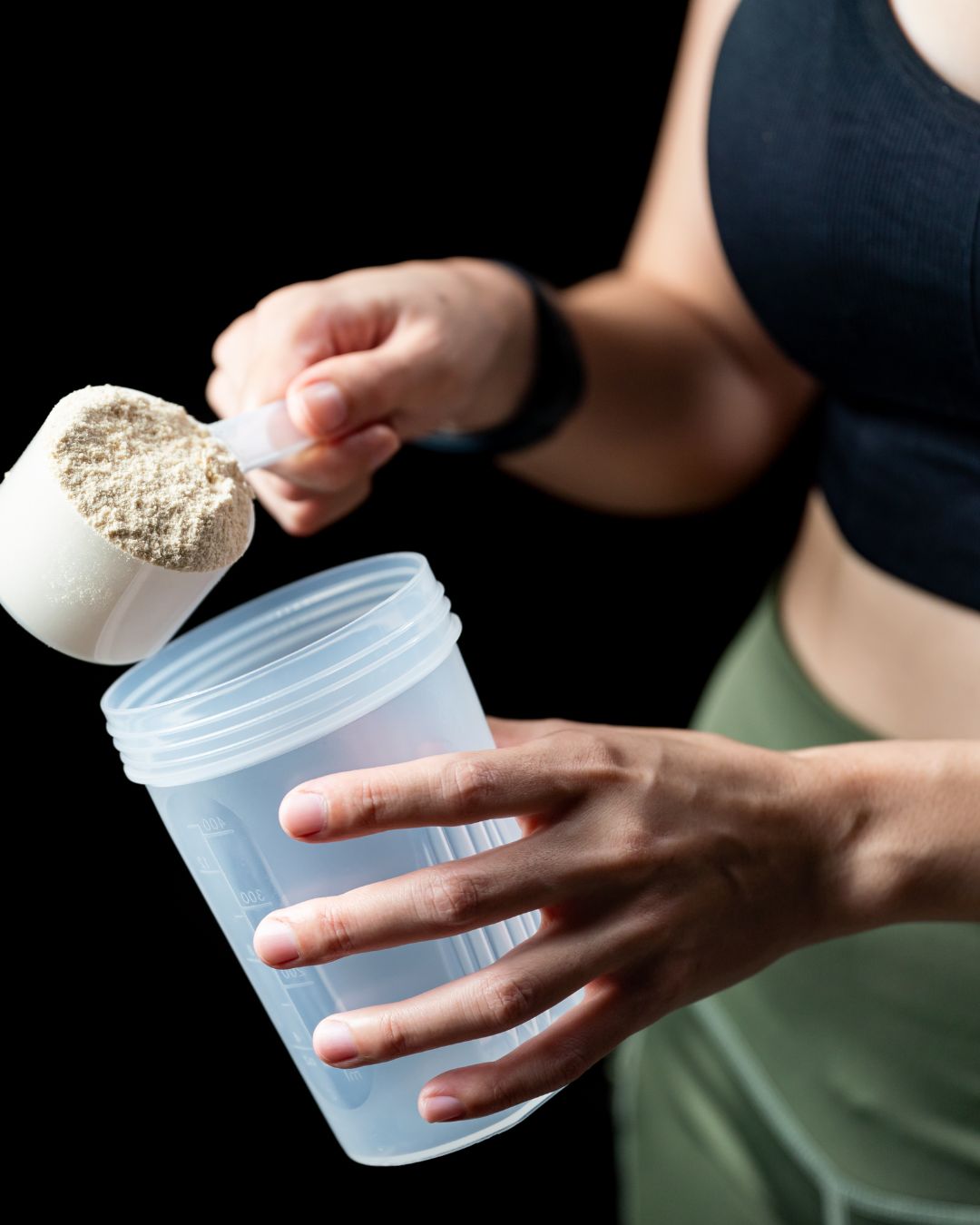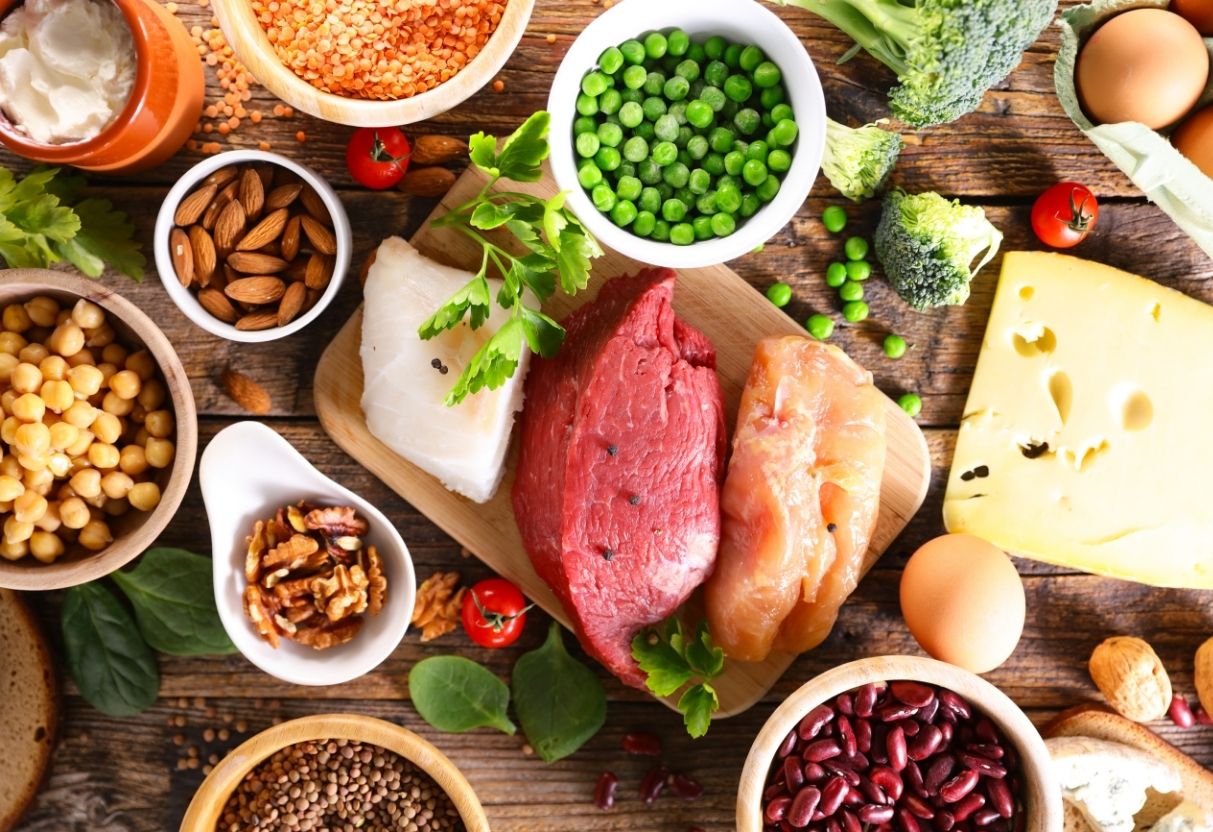3 Tips To Eat More Protein: Boosting Intake Effortlessly

Increasing your protein intake can significantly benefit your health by building muscle, reducing appetite, and burning fat.
Protein is a vital macronutrient that plays a key role in virtually every bodily process.
It's composed of amino acids, which are the building blocks of tissues, enzymes, and hormones.

Whether you're a fitness enthusiast, someone looking to lose weight, or simply aiming to enrich your diet, getting adequate protein is crucial.
Incorporating more protein into your diet doesn't have to be a challenge.
There are several easy and delicious ways to boost your protein consumption.
From choosing the right snacks to incorporating protein-rich foods into each meal, these strategies can help ensure you meet your daily requirements.
Understanding your body's protein needs and learning how to fulfill them can lead to a healthier lifestyle and improved overall well-being.
Key Takeaways
- Proper protein intake supports a variety of body functions and can aid in muscle building and appetite control.
- There are simple and flexible ways to add more protein to your diet.
- Understanding your own protein needs is essential for optimizing your health.
Understanding Protein Basics

Protein is an essential macronutrient that performs critical roles in building muscle, repairing tissue, and producing enzymes and hormones.
Understanding its importance and the recommended intake can help you optimize your health.
Importance of Protein in the Diet
Proteins are the building blocks of your body, vital for the structure and function of all living cells.
Muscles, skin, bones, and other tissues are made up predominantly of protein molecules.
Eating sufficient protein is crucial for muscle repair and growth, hormone synthesis, and maintaining a strong immune system.
Additionally, proteins play a role in transporting molecules throughout the body and facilitating efficient metabolism.
Recommended Dietary Intake
The recommended dietary intake (RDI) of protein varies by individual factors such as age, sex, weight, and activity level.
On average, adults should aim for 0.8 grams of protein per kilogram of body weight per day.
This translates to roughly 46 grams per day for women and 56 grams per day for men.
However, if you are active or trying to build muscle, your protein needs may increase to support recovery and growth.
It's important to distribute protein intake evenly throughout the day and include it in each meal to maximize the body's utilization.
Practical Strategies to Increase Protein Intake
Elevating your protein intake is simpler than you might think.
Focusing on dietary shifts and incorporating specific habits can make a significant difference.
Incorporating Protein-Rich Foods
To seamlessly increase your dietary protein, include a variety of protein-rich foods at each meal.
Eggs, dairy products, lean meats, and legumes are excellent choices.
For instance, starting the day with eggs or Greek yogurt can give you an initial protein boost.
You can easily amplify your lunch and dinner protein content by adding tuna, chicken, or tofu.
Nutritionists often suggest eating protein first during your meal, as it may help with satiety.
Smart Snacking for Improved Protein Intake
Swap out less filling snacks for options that will keep you satiated and contribute to your protein goals.
Keep a stash of nuts like almonds or walnuts, which can be a convenient protein source and also offer healthy fats.
Nutrition experts recommend keeping nuts handy, as they're versatile enough to be added to a range of dishes or eaten alone.
Cleans Beans are a great source of protein with a delicious taste! A perfect nutritious snack the whole family can enjoy.
Supplements and Protein Shakes
When whole food sources are insufficient or convenience is key, protein supplements and shakes might help you meet your daily protein requirement.
Whey protein, casein, and plant-based options like pea or soy protein can be incorporated into shakes or baking recipes.
It's essential to select high-quality supplements that align with your health goals; some may find a meal plan example with adequate protein useful for guidance.
Remember, though, these should complement your diet and not replace whole foods.
Frequently Asked Questions
In this section, you'll find concise answers to common queries about protein intake, including food sources and benefits.
What are some high-protein foods that can help with muscle gain?
For muscle building, foods such as chicken breast, lean beef, turkey, fish like salmon and tuna, and eggs are packed with protein to support your goals.
What are the top protein-rich foods for vegetarians?
Vegetarians should look to lentils, chickpeas, quinoa, tofu, tempeh, and various beans, which are all excellent sources of protein.
How can I naturally increase my protein intake?
You can naturally increase your protein intake by incorporating more lean meats, seafood, dairy products, eggs, legumes, and nuts into your meals.
What are the benefits of a higher protein diet for weight loss?
A higher protein diet can help with weight loss by enhancing satiety, reducing overall calorie consumption, and preserving lean muscle mass during caloric deficits.
How can I enhance my protein consumption without using protein powders?
Enhance your protein consumption by choosing protein-rich snacks like Greek yogurt, cottage cheese, hard-boiled eggs, or by adding seeds and nuts to dishes.
In what ways can increasing protein intake affect my body?
Increasing protein intake can bolster your muscle repair and growth. It can also support a healthy metabolism and improve your overall nutrient uptake.

